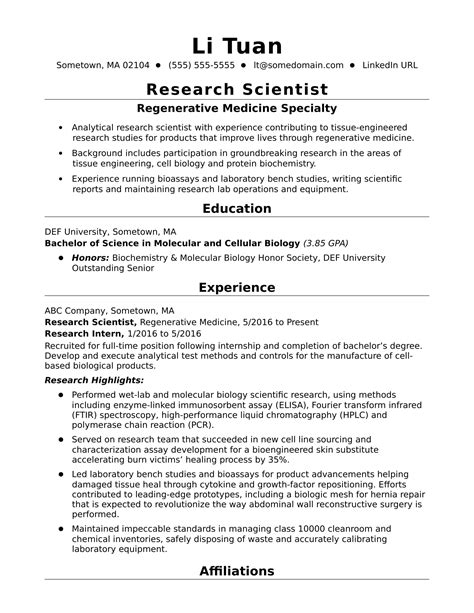When it comes to creating a research resume, it's essential to showcase your skills, experience, and achievements in a clear and concise manner. A well-crafted research resume can help you stand out from the competition and increase your chances of landing a job in your desired field. In this article, we'll explore five ways to improve your research resume and make it more effective.
Understanding the Importance of a Research Resume

A research resume is a critical document that highlights your research experience, skills, and achievements. It’s used to apply for research positions, grants, and academic programs. A good research resume should demonstrate your ability to design, conduct, and analyze research studies, as well as your knowledge of research methods and techniques.
Key Points
- Clearly define your research goals and objectives
- Highlight your research experience and skills
- Emphasize your achievements and contributions to the field
- Use keywords and phrases relevant to the research field
- Include relevant sections, such as a summary, education, and publications
1. Tailor Your Resume to the Job
When applying for a research position, it’s essential to tailor your resume to the job description. Study the job requirements and highlight the skills and experiences that match the position. Use keywords and phrases from the job description to demonstrate your relevance to the role.
| Research Skill | Job Requirement |
|---|---|
| Data analysis | Experience with statistical software, such as R or SPSS |
| Research design | Knowledge of experimental and quasi-experimental designs |
| Grant writing | Experience with grant writing and management |

2. Highlight Your Research Experience
Your research experience is a critical component of your resume. Highlight your research experience, including any research positions, internships, or volunteer work. Emphasize your contributions to research projects, including any data collection, analysis, or publication of results.
For example, if you worked as a research assistant, you could describe your experience as follows:
3. Emphasize Your Achievements
Your achievements are a critical component of your resume. Emphasize any awards, honors, or publications you’ve received for your research. Highlight any presentations you’ve given at conferences or seminars, and include any relevant metrics, such as citation counts or impact factors.
For example, if you published a paper in a peer-reviewed journal, you could describe your achievement as follows:
I published a paper in the Journal of Environmental Science, which received over 100 citations and was highlighted as a "most read" article.
4. Include Relevant Sections
A research resume should include several relevant sections, such as a summary, education, and publications. The summary section should provide an overview of your research experience and goals. The education section should list your degrees, institutions, and relevant coursework. The publications section should list any papers, articles, or book chapters you’ve published.
For example, your education section could look like this:
- Ph.D. in Environmental Science, University of California, Berkeley
- M.Sc. in Ecology, University of Oxford
- B.Sc. in Biology, University of British Columbia
5. Use Action Verbs and Keywords
Finally, use action verbs and keywords relevant to the research field to describe your experience and skills. Action verbs, such as “designed,” “conducted,” and “analyzed,” can help to create a sense of agency and accomplishment. Keywords, such as “data analysis,” “research design,” and “grant writing,” can help to demonstrate your relevance to the field.
For example, you could use the following action verbs and keywords to describe your experience:
- Designed and implemented a study on the effects of climate change on local ecosystems
- Conducted data analysis using statistical software, such as R or SPSS
- Wrote and managed grants to support research projects
What is the purpose of a research resume?
+The purpose of a research resume is to showcase your research experience, skills, and achievements to potential employers, grant reviewers, or academic programs.
How do I tailor my resume to the job?
+Study the job requirements and highlight the skills and experiences that match the position. Use keywords and phrases from the job description to demonstrate your relevance to the role.
What sections should I include in my research resume?
+A research resume should include several relevant sections, such as a summary, education, and publications. The summary section should provide an overview of your research experience and goals. The education section should list your degrees, institutions, and relevant coursework. The publications section should list any papers, articles, or book chapters you've published.
Meta description: Create a strong research resume by tailoring it to the job, highlighting your research experience, emphasizing your achievements, including relevant sections, and using action verbs and keywords.



